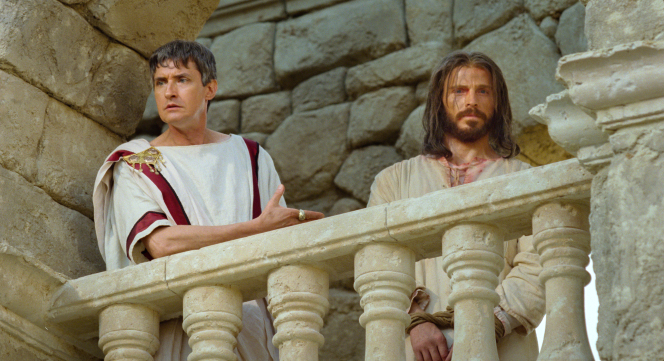Perhaps one of my favorite testimonies of the Atonement
and the Sacrament is from the recently returned
and newly engaged Elder Backus (my nephew).
and the Sacrament is from the recently returned
and newly engaged Elder Backus (my nephew).
I have made it part of my sacrament preparation each week.
On this Good Friday, it seems appropriate to share.
Like
many of us, he had been struggling to find spiritual renewal in
sacrament meeting amidst all of the distractions that can come in
ward meetings. As a missionary, he had lots of concerns about how to
overcome those distractions that were out of his control, and truly
feel the peace that should come from taking the sacrament. In his
personal studies he came to a powerful conclusion:
During
the Feast of the Passover, it was customary for the governor, Pilate, to release one
prisoner according to his wish. After comparing the two candidates,
the answer was simple; Jesus Christ was undoubtedly innocent and
therefore should be released. Beginning in verse 20, however, it
says, “But the chief priests and elders persuaded the multitude
that they should ask Barabbas, and destroy Jesus. Pilate, they all
said unto him, let him be crucified. And the governor said
“why, what evil hath he done? But they cried out the more saying,
let him be crucified. Then released he Barrabas unto them and when he
had scourged Jesus, he delivered him to be crucified. Against all
justice and logic, the guilty prisoner was set free and the innocent
son of God was sent to die.
Amidst
the noise of squirmy toddlers, cell phone distractions and perhaps
even wandering thoughts, this account is replayed every week of our
lives in our sacrament meetings. Each one of us, through the week,
fall short of keeping all of the commandments. Each Sunday we are
presented at the sacrament altar as the guilty prisoner in need of
punishment. But each week, the Savior offers himself, in the form of
bread and water and takes our place. We humbly promise to try to do
better this next week and then we, like Barrabas, are set free.
He
concludes by saying:
When
we truly understand and look forward to the sacredness and importance
of the sacrament, no matter what the circumstances are around us, we
can guarantee ourselves a spiritually renewing experience at church.
May your Easter weekend be renewing and filled with the hope that comes from the Resurrection.
